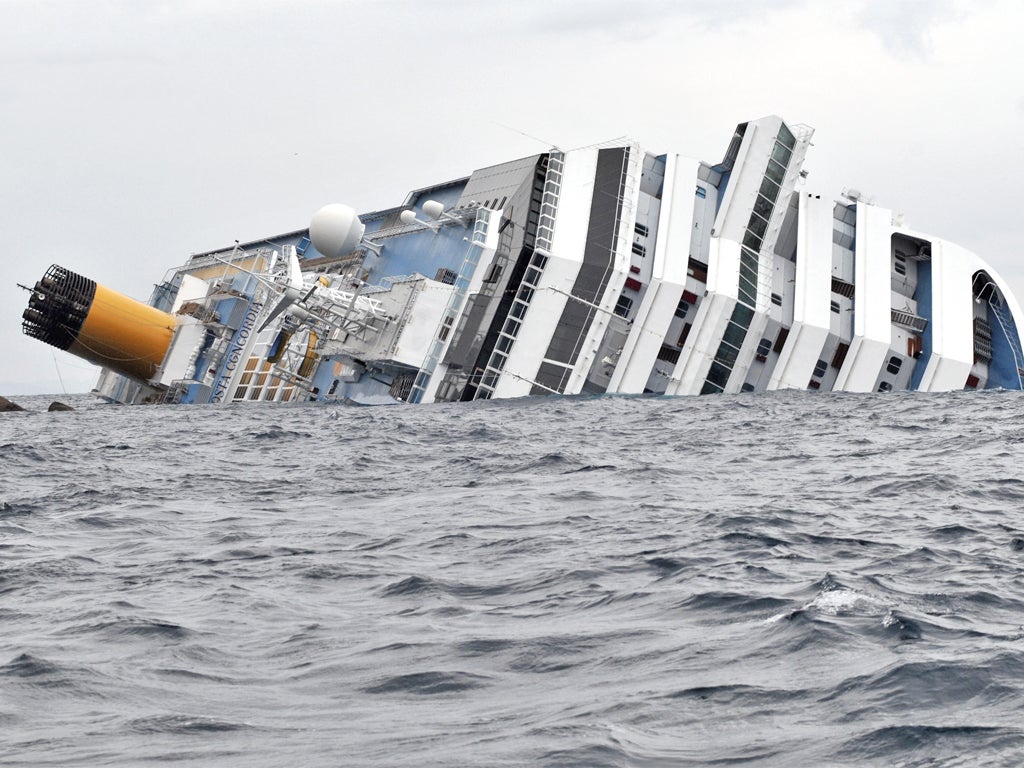Mary Dejevsky: In the new order of chivalry, fathers go first
Notebook


Your support helps us to tell the story
From reproductive rights to climate change to Big Tech, The Independent is on the ground when the story is developing. Whether it's investigating the financials of Elon Musk's pro-Trump PAC or producing our latest documentary, 'The A Word', which shines a light on the American women fighting for reproductive rights, we know how important it is to parse out the facts from the messaging.
At such a critical moment in US history, we need reporters on the ground. Your donation allows us to keep sending journalists to speak to both sides of the story.
The Independent is trusted by Americans across the entire political spectrum. And unlike many other quality news outlets, we choose not to lock Americans out of our reporting and analysis with paywalls. We believe quality journalism should be available to everyone, paid for by those who can afford it.
Your support makes all the difference.The other day, an elderly man with a walking-stick stood back to let me get on the bus. I signalled for him to get on first, but he insisted. In his canon, gender trumped age and infirmity. This sort of chivalry, though, is disappearing fast.
How fast seemed crystallised by reports of what happened during the evacuation of the Costa Concordia. For every tale of heroism – and there were plenty – there's been a matching account of how able-bodied men pushed their way on to the lifeboats, and nostalgic breast-beating about that long-lost time when women and children went first.
Now it may be that "women and children first" was only ever a mythical ideal, though the survival figures for the Titanic show that here it was largely observed. There is also the view that giving precedence to women and children presumes and perpetuates an outdated notion of a weaker sex and children as the responsibility of women – valid though both contentions might be in extreme situations.
But it was less the apparent abandonment of "women and children first" on the Costa Concordia that struck me – how feasible would it be to contest the survival instinct, especially if the captain has fled? – than the reason one survivor gave as to why the traditional order of evacuation broke down. According to him, it was not fit young men who had kyboshed the principle by rushing to the lifeboats, but fathers who had refused to be parted from their families, on the grounds that a man's duty was to protect his own.
Set aside for a moment all the patriarchal stereotypes that this reinforces and consider instead the whole new chivalric code that proceeds from it. This is a code in which the (very traditional) nuclear family claims precedence in the survival stakes over everyone else, by virtue of being, well, a nuclear family. And dads jump the queue, not just of men less able to save themselves than these virile specimens with babes literally or metaphorically in their arms, but the queue of childless women, the elderly and the infirm.
A scale of values along these lines can already be observed in such prosaic situations as the boarding of planes and supermarket parking, and in education – pushy parents, anyone? But if "nuclear families first" is the canon of 21st-century chivalry, perhaps it should be made explicit. The rest of us will then at least know the score. My own view is that the dads should have stood back in favour of the women and children. But that's just me. After all, I did get on the bus ahead of the elderly gent, and offered a demure thank you, as a lady should.
Let them lie where they fell
When the repatriation of dead soldiers was moved from Wootton Bassett, many welcomed an end to a ceremony they felt had become mawkish. I saw it rather as a needed ritual, but also regretted that our soldiers were no longer buried where they fell. My regret was only reinforced by a visit to the Commonwealth war cemetery at El Alamein.
Like other war cemeteries I've been to, this is beautifully situated in its landscape. Sparely designed, it's a haven of order and immaculately-cared-for peace. It's unrealistic to hope that current practice will change, but I doubt that those who died here in 1941-2 would have been honoured more by dipped banners in an English market town than by this austere graveyard in the north Egyptian desert.
Join our commenting forum
Join thought-provoking conversations, follow other Independent readers and see their replies
Comments